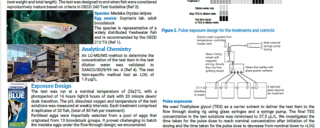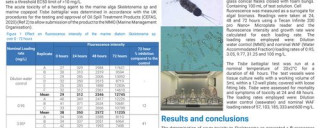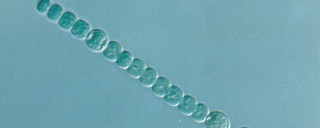Assessing the Acute Toxicity of Herders to Skeletonema sp and Tisbe battagliai
in Accordance with the UK Procedures for the Testing and Approval of Oil Spill Treatment Products

Tyler-Rose Woolley¹ , Fern Lyne-Temple¹, Daniel Hill¹, Rob Holland² ¹ Scymaris Ltd., Brixham Laboratory, Freshwater Quarry, Brixham Devon TQ5 8BA UK, ² Oil Spill Response Limited, United Kingdom
A herding agent (or herder) is a chemical product containing a surface-active ingredient designed to reduce the surface tension of water and change how an insoluble liquid like crude oil spreads, causing oil slicks to rapidly thicken. Thicker oil slicks are more amenable to in-situ burning and are easier to recover by skimming.


The use of a herder in a spill would always be guided by applied “Net Environmental Benefit Analysis” principles to ensure that no further harm is caused by the response technique (Ref 1). Herding agents can also be used to aid in the protection of sensitive resources e.g. saltmarshes. In this application, the herder is used to deflect oil away from these areas and reduce the impact risk. Herders are commercially ready for use; however, they require appropriate regulatory approvals before they can be considered for use in event of an oil spill.
This website uses cookies to ensure you get the best experience. Learn more







